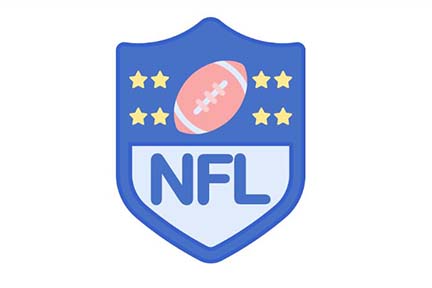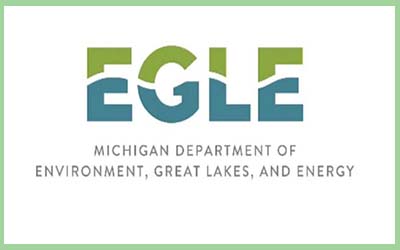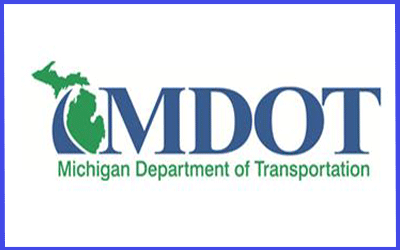FOR IMMEDIATE RELEASE
April 22, 2024
Jeff Johnston, EGLE Public Information Officer, [email protected], 517-231-9304
Tamara Lipsey, Aquatic Biologist, [email protected], 517-342-4372
EGLE awards 27 grants to conduct stream cleanups and monitoring
More than $100,000 will help local governments and nonprofit organizations improve Michigan waterways
The Michigan Department of Environment, Great Lakes, and Energy (EGLE) today announced $102,273 through 27 grants to local governments and nonprofit organizations for stream cleanup and monitoring through the Michigan Clean Water Corps (MiCorps) Program. These annual grants help foster local stewardship and a sense of community while providing valuable data used to protect Michigan’s waters.
The MiCorps Volunteer Stream Cleanup Program provides grants to local units of government to clean and improve Michigan waterways. Local governments often partner with nonprofits or other volunteer groups for the cleanups, which include removal of trash and other manmade debris from streams and stream banks.
The cleanup grant program began in 1998 and is funded by fees from the sale of Michigan’s specialty water quality protection license plates, available from the Secretary of State’s Office.
The local governments selected to receive cleanup funding in 2024 are:
- City of Ann Arbor, $4,020.
- City of Battle Creek, $2,878.
- City of Ecorse, $5,000.
- City of Lansing, $5,000.
- Grand Traverse Conservation District, $2,168.
- Macatawa Coordinating Council, $3,540.
- Muskegon Conservation District, $2,663.
- Newaygo Conservation District $5,000.
- Ottawa County Water Resources, $1,250.
- Joseph Conservation District, $1,926.
- Shiawassee County Health Department, $5,000.
- Van Buren Conservation District, $1,708.
The MiCorps Volunteer Stream Monitoring Program provides grants to enable local governments and nonprofits to conduct volunteer-based water quality and stream habitat monitoring through benthic macroinvertebrate surveys and habitat assessments. Three types of monitoring grants are available. Startup grants get groups started with learning and planning, implementation grants fund the first two years of official monitoring, and maintenance grants help groups that are already monitoring replace equipment and continue their program.
The Ottawa Conservation District received a startup grant of $4,701. The Barry Conservation District received an implementation grant of $19,923. Receiving maintenance grants are:
- Berrien Conservation District, $3,000.
- Clinton River Watershed Council, $3,000.
- Friends of the Rouge, $3,000.
- Grass River Natural Area, Inc., $1,839.
- Kalamazoo Nature Center, $3,000.
- Little Forks Conservancy, $2,999.41.
- Lower Grand River Organization of Watersheds, $2,999.
- Manistee Conservation District, $3,000.
- Muskegon River Watershed Assembly, $2,932.55.
- The University of Olivet, $2,964.
- The Watershed Center Grand Traverse Bay, $3,000.
- Tip of the Mitt, $3,000.
- Joseph Conservation District, $2,760.
EGLE established MiCorps in 2004 to engage the public in collecting water quality data for use in water resources management and protection programs. MiCorps is administered for EGLE by Michigan State University Extension, in partnership with the Michigan Lakes and Streams Association and Huron River Watershed Council.
Questions about the grant award process should be directed to Dr. Paul Steen, Huron River Watershed Council, 734-519-0449 or [email protected]; or Tamara Lipsey, Lake Michigan Unit, Great Lakes Watershed Assessment, Restoration, and Management Section, Water Resources Division, EGLE, 517-342-4372 or [email protected].
To stay up to date on other EGLE news, follow us at Michigan.gov/MIEnvironment. |








